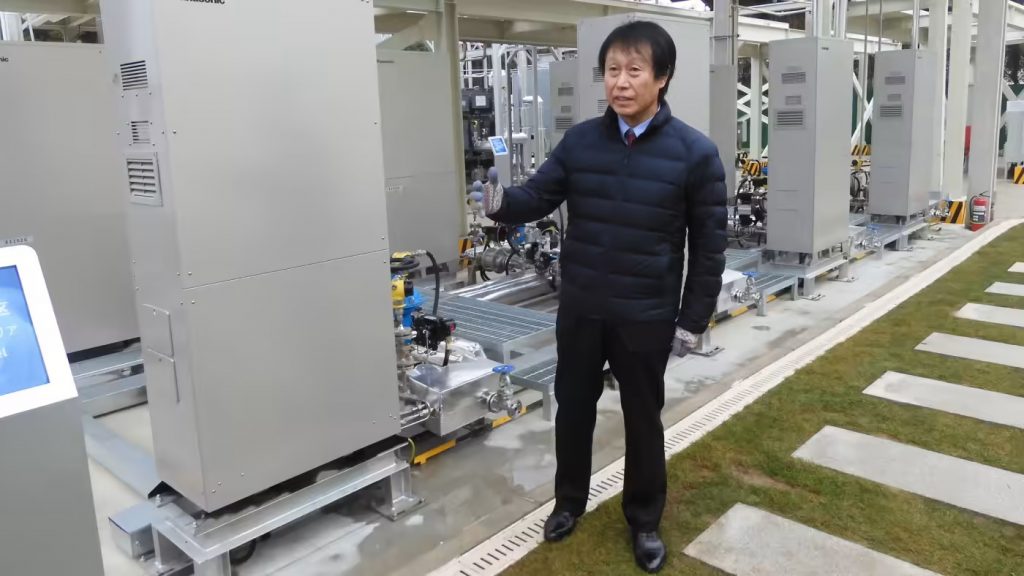Panasonic is set to launch pure hydrogen fuel cell generators in China starting from April. The aim is to develop global demand for the technology as a 24-hour alternative to solar panels for factories and offices. This move comes as the company looks to establish itself as a leader in the industry, having already started sales of stand-alone fuel cells in Europe and Japan. Here are the details…
Panasonic to sell pure hydrogen fuel cell generators in China
Shigeru Dohno, President of Panasonic Holdings’ China & Northeast Asia unit, announced the move at the company’s battery plant in the city of Wuxi. He emphasized that Panasonic is ahead of the pack in developing this technology and will continue to lead the way in sales. The factory in Wuxi will be used as a showroom for the technology.

Hydrogen fuel cells generate electricity through a chemical reaction between hydrogen and oxygen. The process emits no carbon dioxide and has several advantages, such as the ability to generate power at all hours and a smaller space requirement than solar panels. However, the high cost of hydrogen fuel remains a challenge, although prices are expected to fall as demand grows.
The Chinese market for hydrogen fuel cell businesses is already quite competitive, with about 100 companies operating in the industry. However, most of them are involved in automotive fuel cells rather than stand-alone types for homes or businesses, as noted by Dohno. Thus, the launch of pure hydrogen fuel cell generators by Panasonic presents a unique opportunity for the company to make an impact in the industry.
Panasonic’s stand-alone fuel cells have already begun sales in Europe, where the company is working with German heating systems maker Viessmann to bring the first systems online in April. Similarly, the fuel cells were launched in Japan in October 2021 and have been installed in a housing development in the Harumi district of Tokyo, among other facilities such as research laboratories.
Despite the high cost of hydrogen fuel, the adoption of fuel cells for power generation is growing globally. The International Energy Agency predicts that hydrogen demand could increase by a factor of 10 by 2050. Furthermore, governments worldwide are investing heavily in hydrogen technology as a clean and reliable source of energy, with the potential to reduce greenhouse gas emissions and achieve sustainability goals.
RELATED:
- Putting “Unbreakable” Huawei Kunlun Glass to the Test: The Results May Surprise…
- Nokia Phones Go Local: HMD’s Game-Changing Manufacturing Decision
- Poco C55 Launched in India with 6.71-inch HD+ display, Helio G85, 5,000mAh Battery and More
- Investigation Shows Google Profiting from Anti-Abortion Ads Targeting Pregnant Women
- Sony’s Chip Unit Offers Full Remote Work to Software Engineers to Attract Quality Talent
(via)







